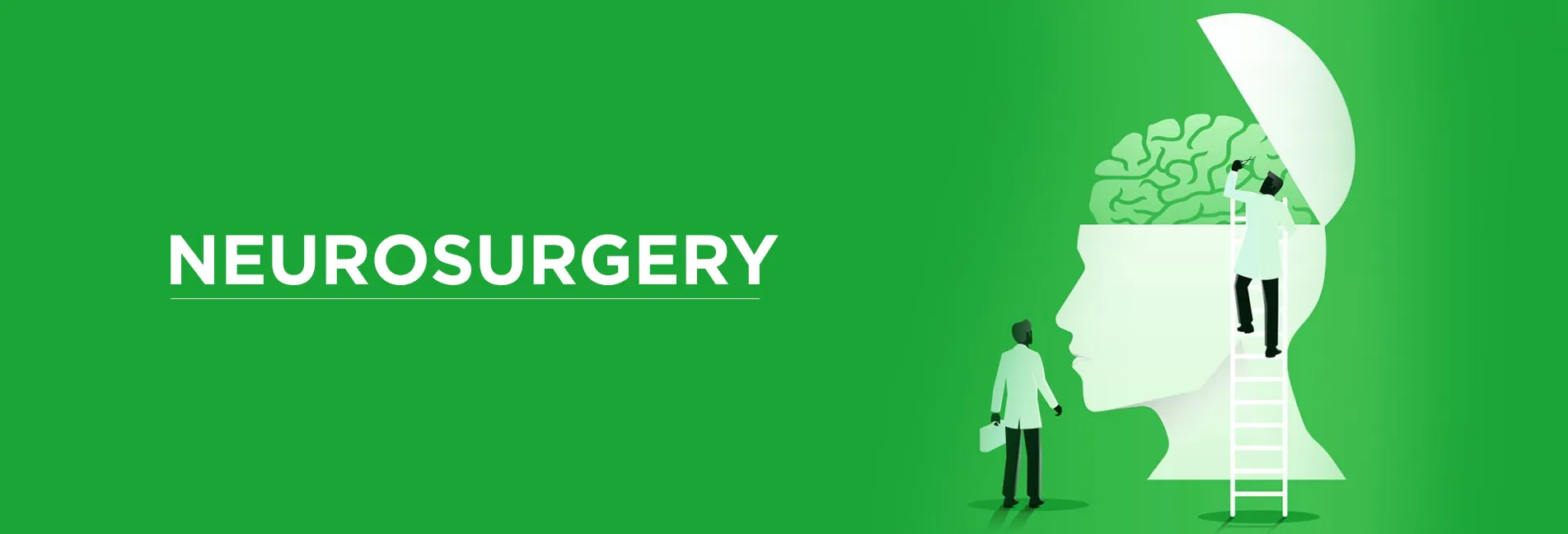
Neurology – Best Neurology Hospital in Jaipur, Rajasthan
Best Neurologist Doctor And Hospital in Jaipur Rajasthan

Neurosurgery is a medical speciality that deals with health problems related to the brain, spinal cord and spinal column and peripheral nervous system of the body, in both adults and children.
At Chirayu Hospital, the neurosurgeons not only perform major brain and spine surgeries, but also treat the patients suffering from back or neck pain, neuralgias, epilepsy, trauma/injury, Parkinson’s disease, etc through surgical and non-surgical methods.
Our Neurology Services – Complete Brain & Nerve Care
We offer diagnosis, treatment, and follow-up care for a wide range of neurological issues, including:
1. Stroke & Paralysis Management
Time is critical in stroke treatment. Our neurologists are trained in emergency stroke care, clot-busting therapies (thrombolysis), and long-term paralysis rehabilitation. We also help patients prevent future strokes through lifestyle and medication guidance.
2. Epilepsy & Seizure Disorders
We provide detailed evaluations for seizure types, EEG testing, and long-term medication management. Our goal is to help patients control their seizures and improve their quality of life.
3. Parkinson’s Disease & Movement Disorders
If you have shaking hands, muscle stiffness, or feel slow while moving, our doctors can help. We provide the right medicines, physical therapy, and support for conditions like Parkinson’s disease, Dystonia, and other problems that affect how your body moves.
4. Headaches & Migraine Treatment
From tension headaches to severe migraines, our team identifies the root cause and provides treatment that may include medication, dietary changes, and stress management.
5. Memory Loss & Dementia Care
We help families and patients manage conditions like Alzheimer’s disease and age-related memory issues with early diagnosis, medication, and cognitive support.
6. Vertigo, Balance & Gait Disorders
We assess causes of dizziness and imbalance and provide both medical treatment and physiotherapy for safe recovery.
7. Brain & Spine Infections
We treat serious infections like meningitis, encephalitis, and spinal infections with quick and proper care. Patients may need to stay in the hospital and receive intensive treatment to recover safely.
Special Neurology Procedures & Facilities at Chirayu Hospital
Our neurologists and medical team are experienced in doing and understanding many important tests and procedures, such as:
- Electroencephalogram (EEG)
- Nerve Conduction Studies (NCV)
- Electromyography (EMG)
- MRI Brain & Spine
- CT Scan
- Stroke Management (Thrombolysis)
- Neurological Rehabilitation Therapy
- IV Immunoglobulin (IVIG) & Steroid Therapies for Neuroimmune Conditions
We also have a dedicated Neuro ICU for critically ill patients needing advanced monitoring and life support.
Neurological Symptoms You Shouldn’t Ignore
Please consult a neurologist if you or your loved one is experiencing:
- Frequent headaches or migraines
- Sudden weakness or paralysis in any part of the body
- Loss of memory or confusion
- Seizures or sudden unconsciousness
- Tingling, burning, or numbness in hands and feet
- Difficulty walking, maintaining balance, or speaking
- Vision problems or facial drooping
- Chronic neck or back pain with weakness
Early diagnosis and treatment can make a major difference in recovery and long-term outcomes.
Top Neurologist & Neuro Specialist Doctors in Jaipur
At Chirayu Hospital, we understand that neurological disorders can be overwhelming, both physically and emotionally. Whether you're experiencing frequent headaches, seizures, stroke symptoms, or muscle weakness, our expert team is here to help you regain your health and confidence.
Recognized as one of the best neurology hospitals in Jaipur, we offer advanced care for conditions related to the brain, spine, and nervous system. From diagnosis to recovery, our focus is on providing precise, personalized, and compassionate neurological care under one roof.
Why Chirayu Hospital Is the Best Choice for Neurological Care in Jaipur
- Experienced neurologists and neuro physicians with strong clinical backgrounds
- Advanced diagnostic tools like EEG, MRI, CT Scan, and EMG
- 24/7 emergency stroke and seizure care
- Comprehensive neuro rehabilitation services
- Patient-first approach with personalized treatment plans
- Clean, well-equipped neuro ICU and inpatient facilities
- Affordable treatment options with long-term care support
FAQs
Our Neurologist

Dr. Ankit Chaudhary
(MBBS, MCh. Neurosurgery)
Dr. Ankit Chaudhary is an experienced General practitioner with more than 10 years of work experience in Medicine. Dr. Ankit Chaudhary graduated from prestigious N.H.L Medical College, India in 2008. He believes in a patient–centred approach to medical care. He places a strong emphasis on providing a positive experience for all patients. He gained fellowship with RACGP in 2018. During this time, he also gained a certificate of Diploma in Child Health through online learning at University of Sydney.

 Telemedicine
Telemedicine 
